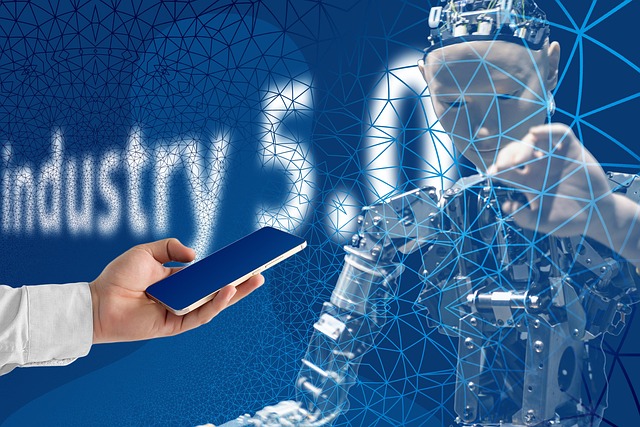# Innovations in AI Technology: Transforming Industries and Shaping the Future of Human Interaction
Artificial Intelligence (AI) has emerged as a transformative force across various sectors, fundamentally altering how businesses operate and individuals interact. As innovations in AI technology continue to evolve, they not only enhance efficiency and productivity but also redefine the very fabric of human engagement. This article delves into the latest advancements in AI, exploring their impact on industries and the future of human interaction.
## Revolutionizing Industries with AI
In recent years, numerous industries have harnessed the capabilities of AI to streamline processes and improve outcomes. Healthcare, for instance, has witnessed a paradigm shift due to AI-driven diagnostics and personalized medicine. Machine learning algorithms analyze vast datasets from medical records and imaging, enabling early detection of diseases and tailored treatment plans. By leveraging AI, healthcare providers can enhance patient care and reduce costs, ultimately saving lives.
Manufacturing is another sector undergoing a significant transformation. The integration of AI in robotics and automation has led to the rise of smart factories. These facilities utilize AI to optimize production lines, predict equipment failures, and manage supply chains more effectively. Consequently, manufacturers can achieve higher efficiency and lower operational costs, while also responding more swiftly to market demands. The convergence of AI and the Internet of Things (IoT) further amplifies these benefits, creating interconnected systems that enhance decision-making and productivity.
In the realm of finance, AI technologies have revolutionized risk assessment and fraud detection. Financial institutions now employ advanced algorithms to analyze transaction patterns and identify anomalies, significantly mitigating the risk of fraud. Moreover, AI-driven chatbots and virtual assistants have transformed customer service, providing instant support and personalized financial advice. As a result, the finance industry is not only improving its operational efficiency but also enhancing customer satisfaction.
## Enhancing Human Interaction through AI
Beyond its industrial applications, AI is reshaping how humans interact with technology and each other. Natural Language Processing (NLP) advancements have enabled more intuitive communication between humans and machines. Virtual assistants like Amazon’s Alexa and Apple’s Siri can understand and respond to spoken language with remarkable accuracy, making technology more accessible to a broader audience. This shift towards conversational interfaces fosters a more seamless integration of AI into daily life, allowing users to engage with technology in a more human-like manner.
Moreover, AI-driven personalization is enhancing user experiences across various platforms. Streaming services, e-commerce sites, and social media platforms leverage AI algorithms to analyze user behavior and preferences, offering tailored recommendations that resonate with individual tastes. This level of personalization not only improves user satisfaction but also fosters deeper connections between brands and consumers. As users increasingly expect tailored experiences, businesses must prioritize AI-driven strategies to remain competitive.
Interestingly, AI is also playing a pivotal role in addressing social issues. For instance, AI technologies are being deployed to analyze data related to social justice, education, and public health. By identifying patterns and trends, AI can help policymakers make informed decisions that promote equity and inclusivity. Additionally, AI-driven tools are being developed to support mental health initiatives, providing accessible resources and support systems for individuals in need. As society grapples with complex challenges, AI stands as a powerful ally in fostering positive change.
## The Ethical Considerations of AI Innovation
While the innovations in AI technology present numerous benefits, they also raise important ethical considerations. As AI systems become more integrated into our lives, concerns about privacy, bias, and accountability have come to the forefront. Data privacy is a significant issue, as AI relies on vast amounts of personal data to function effectively. Ensuring that this data is collected, stored, and utilized responsibly is paramount to maintaining public trust in AI technologies.
Bias in AI algorithms poses another critical challenge. If not carefully managed, AI systems can perpetuate existing biases present in training data, leading to unfair outcomes in areas such as hiring, lending, and law enforcement. It is essential for developers and organizations to prioritize fairness and transparency in AI design, employing diverse datasets and rigorous testing to mitigate bias. This commitment to ethical AI development will be crucial in fostering equitable outcomes for all users.
Accountability in AI decision-making is also a pressing concern. As AI systems take on more complex roles, determining responsibility for their actions becomes increasingly complicated. Establishing clear guidelines and frameworks for accountability will be vital in addressing potential harms caused by AI technologies. Stakeholders, including policymakers, technologists, and ethicists, must collaborate to create a regulatory environment that promotes responsible AI innovation while encouraging continued advancements.
## Conclusion: A Future Shaped by AI
As we look to the future, the potential of AI technology to transform industries and human interaction is undeniable. From revolutionizing healthcare and manufacturing to enhancing personalized experiences and addressing social issues, AI is poised to play an integral role in shaping our world. However, the journey toward a future enriched by AI will require a balanced approach that prioritizes ethical considerations alongside innovation.
Ultimately, the ongoing dialogue surrounding AI’s impact on society will be crucial in navigating its complexities. By fostering collaboration among diverse stakeholders and promoting responsible AI practices, we can harness the power of this technology to create a more equitable and connected world. The innovations in AI technology not only hold the promise of transforming industries but also of enhancing the very essence of human interaction, paving the way for a future filled with possibilities.











